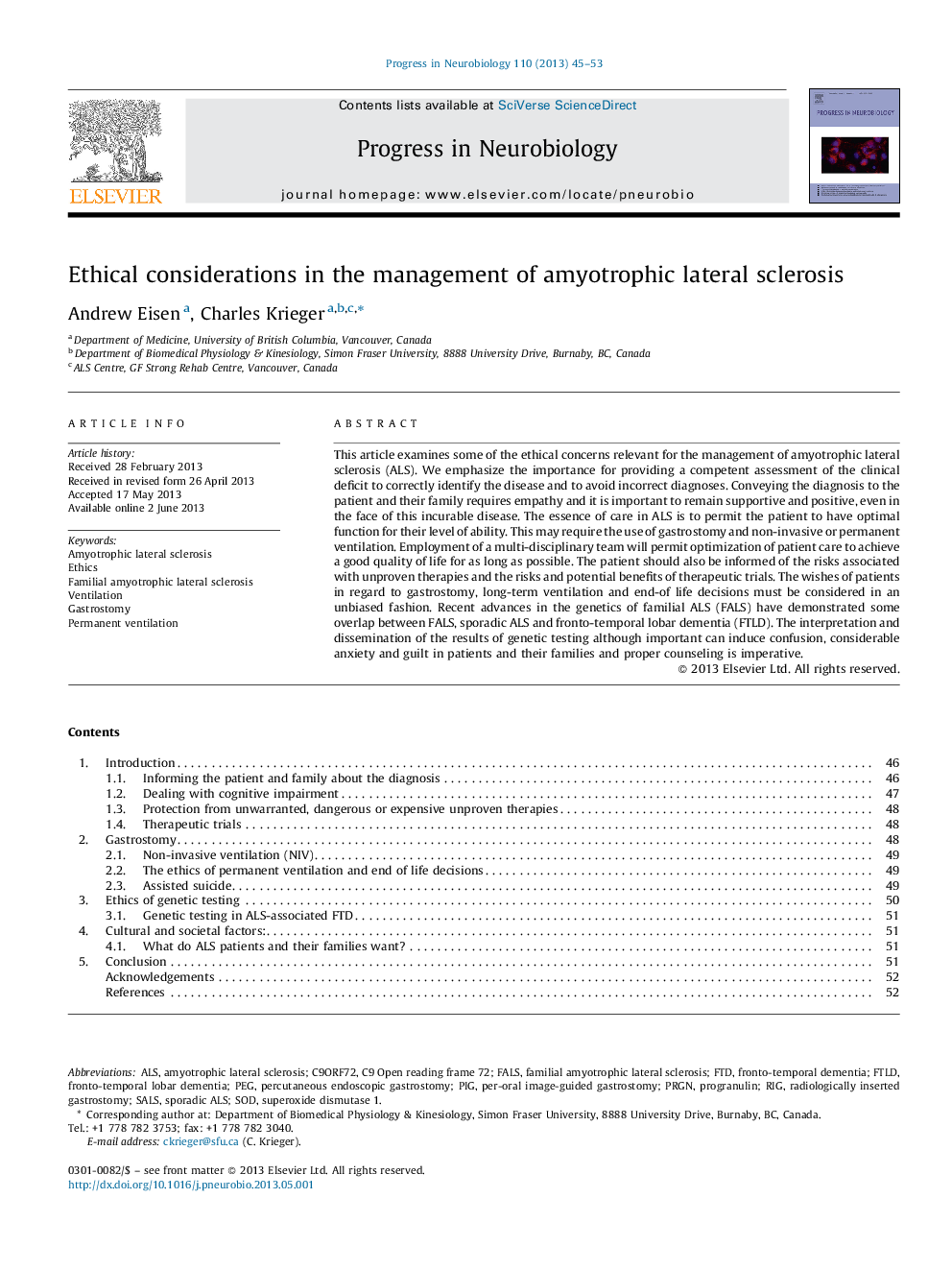| Article ID | Journal | Published Year | Pages | File Type |
|---|---|---|---|---|
| 4353327 | Progress in Neurobiology | 2013 | 9 Pages |
•The essence of care in ALS is to permit the patient to have optimal function for their level of ability.•Employment of a multi-disciplinary team will permit optimization of patient to achieve a quality of life for as long as possible.•The patient should also be informed of the risks associated with unproven therapies and the risks and potential benefits of therapeutic trials.•The wishes of patients in regard to PEG, long-term ventilation and end-of life decisions must be considered in an unbiased fashion.
This article examines some of the ethical concerns relevant for the management of amyotrophic lateral sclerosis (ALS). We emphasize the importance for providing a competent assessment of the clinical deficit to correctly identify the disease and to avoid incorrect diagnoses. Conveying the diagnosis to the patient and their family requires empathy and it is important to remain supportive and positive, even in the face of this incurable disease. The essence of care in ALS is to permit the patient to have optimal function for their level of ability. This may require the use of gastrostomy and non-invasive or permanent ventilation. Employment of a multi-disciplinary team will permit optimization of patient care to achieve a good quality of life for as long as possible. The patient should also be informed of the risks associated with unproven therapies and the risks and potential benefits of therapeutic trials. The wishes of patients in regard to gastrostomy, long-term ventilation and end-of life decisions must be considered in an unbiased fashion. Recent advances in the genetics of familial ALS (FALS) have demonstrated some overlap between FALS, sporadic ALS and fronto-temporal lobar dementia (FTLD). The interpretation and dissemination of the results of genetic testing although important can induce confusion, considerable anxiety and guilt in patients and their families and proper counseling is imperative.
